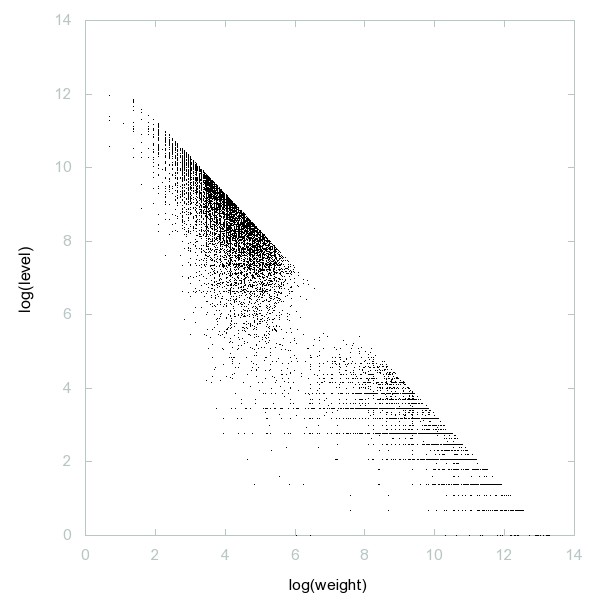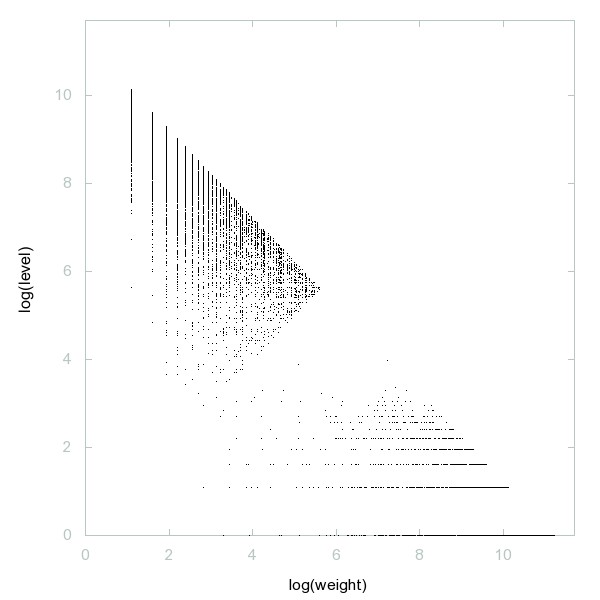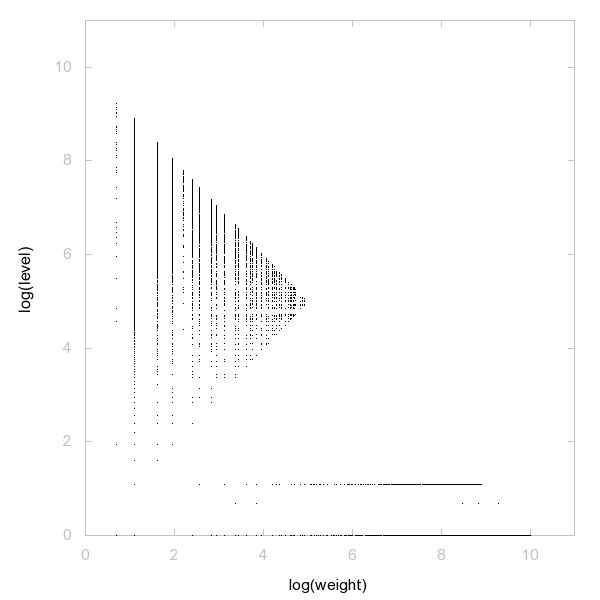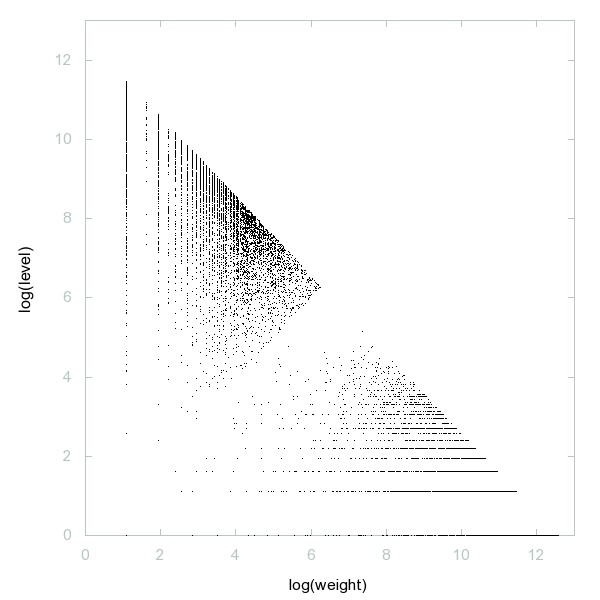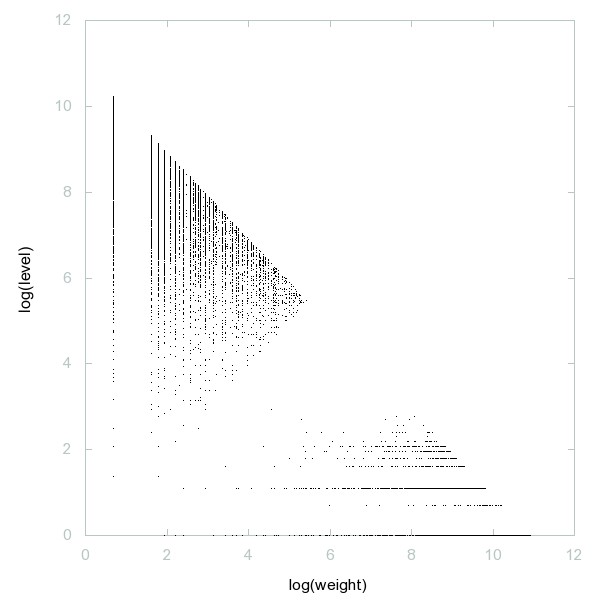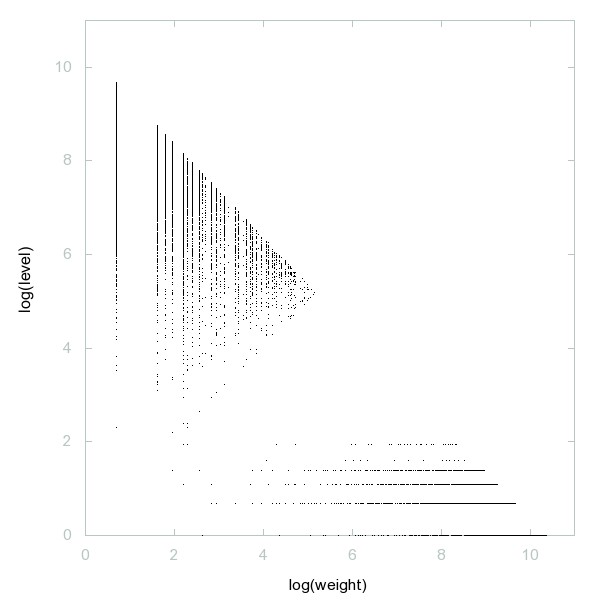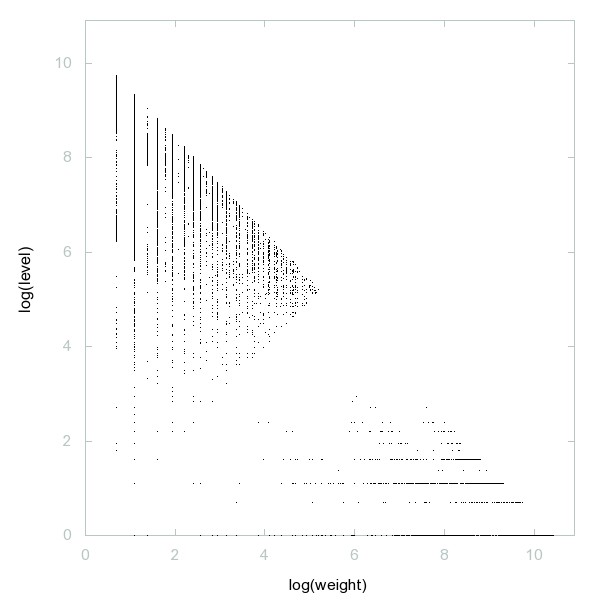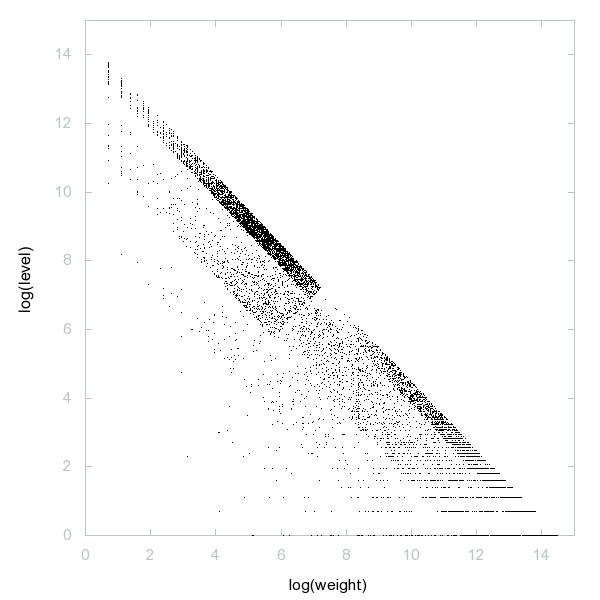Decomposition of 8-almost primes
Numbers that are divisible by exactly 8 primes counting multiplicity.
Decomposition of A046316
Odd numbers divisible by exactly 3 primes (counted with multiplicity).
Decomposition of A046386
Products of four distinct primes.
Decomposition of A046411
Concatenation of prime factors of a(n) is a prime.
Decomposition of A046642
Numbers n such that n and number of divisors d(n) are relatively prime.
Decomposition of Additive primes
Additive primes: sum of digits is a prime.
Decomposition of A046711
From the Bruck-Ryser theorem: n == 1 or 2 (mod 4) which are also the sum of 2 squares.
Decomposition of A046712
From the Bruck-Ryser theorem: n == 1 or 2 (mod 4) which are not the sum of 2 squares.
Decomposition of Equidigital numbers
Equidigital numbers.
Decomposition of Economical numbers
Economical numbers: write n as a product of primes raised to powers, let D(n) = number of digits in product, l(n) = number of digits in n; sequence gives n such that D(n)<l(n).
